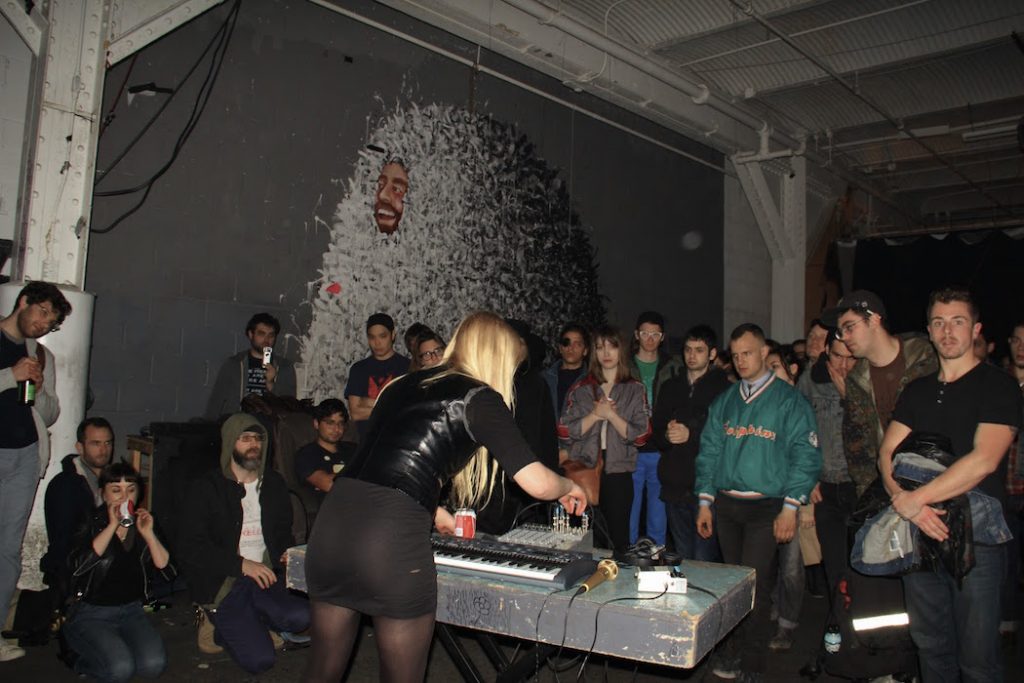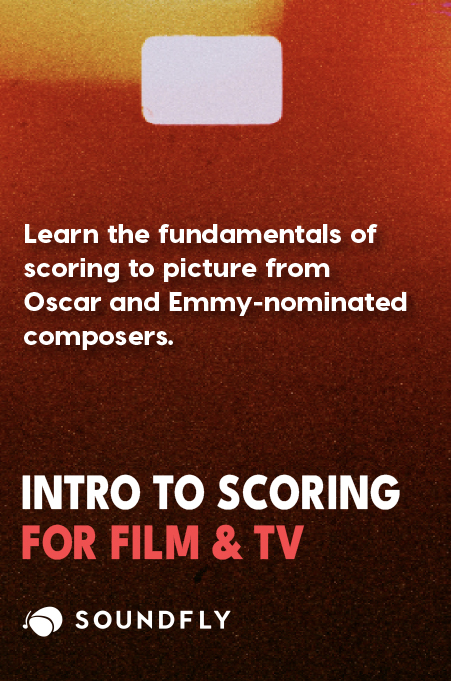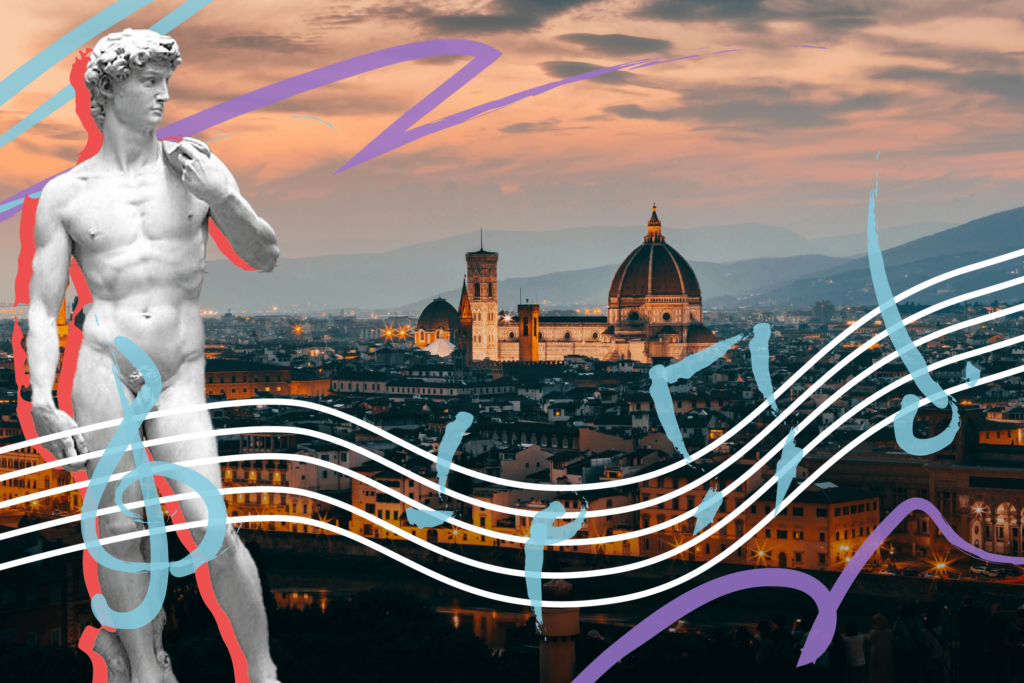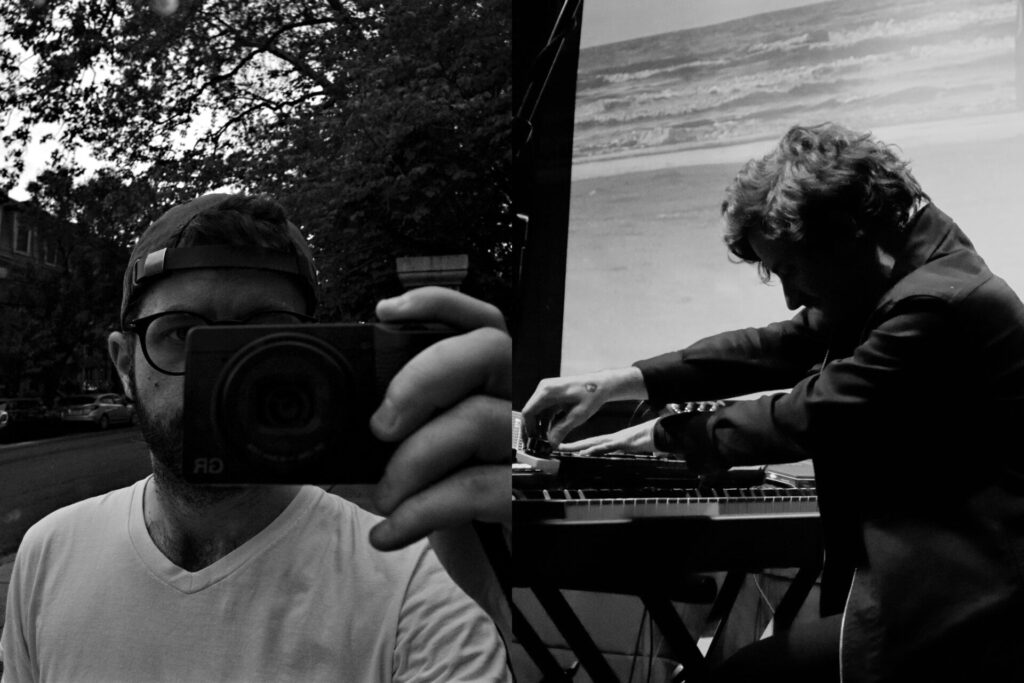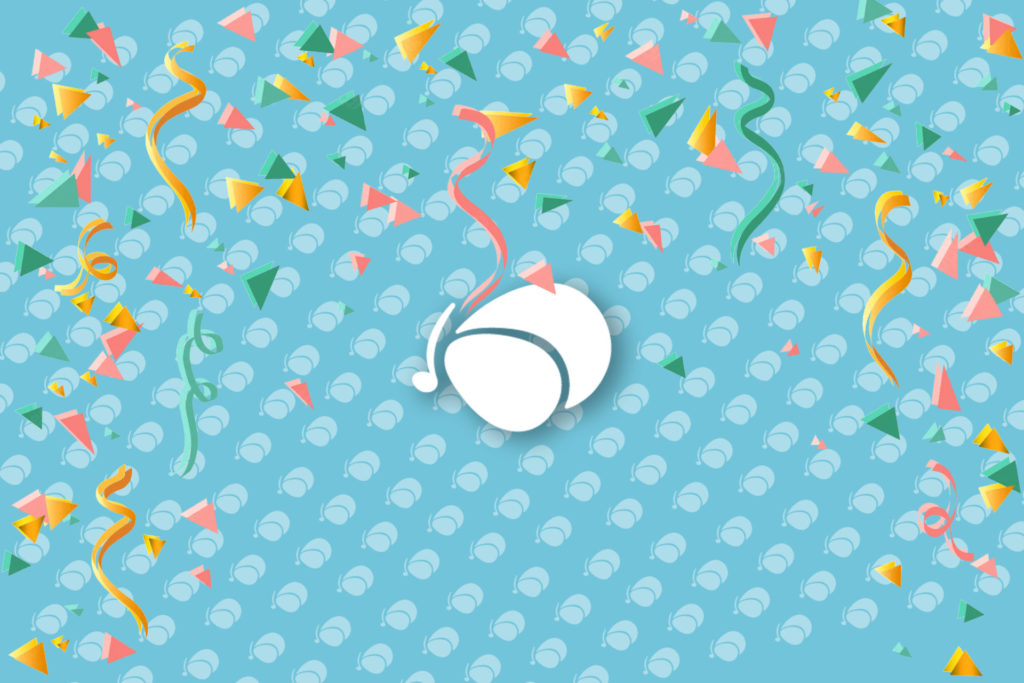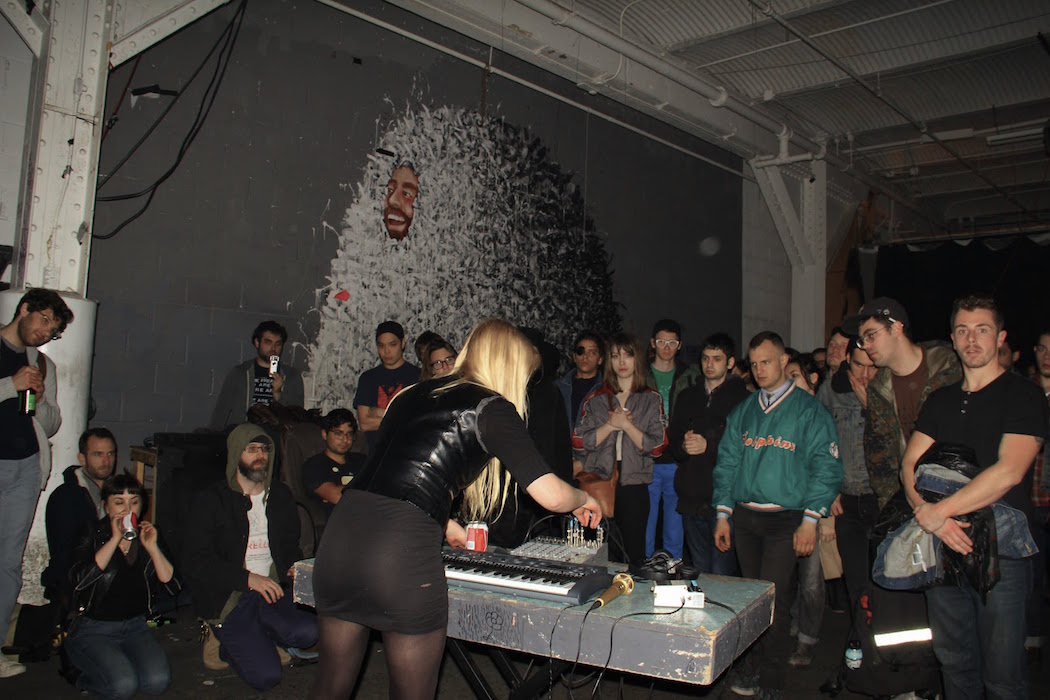
Whether we feel comfortable confronting it or not, there exists a fundamental hypocrisy in experimental music today. For me, a straight, white, middle-class male living in New York City, I’ve had to climb over no barriers in order to get deeply involved with what some may refer to as the “scene” here. Playing experimental, noise, or free music already narrows your audience to a very specific niche crowd. While other scenes in electronic music have made noticeable strides towards inclusivity in broadening their communities, at least the conversation remains on the table, we’re still nowhere near “equal opportunity” (for an infuriating laugh, check out the Tumblr Very Male Line-Ups!).
Experimental, improvised, noise, and other “outsider” musics, all still maintain some of the whitest and most predominantly male audiences and performer bases out there, despite the fact that many DIY spaces boast a rhetoric of inclusivity and community-driven programming.
And this surprises me, being that, musically speaking, noise is the most liberal and accessible style of music to make. Instrumental virtuosity can be replaced by originality, energy, conceptual performance, exploratory sound-making, and any unique form of open auditory expression that seeks to connect with an audience.
There is nothing inherently exclusive to this, or any, type of music. But the culture we’ve built up around experimental and noise music has permitted sexist imagery and misogynistic narratives (inherited in part from early, influential power electronic and industrial acts), creating an unwelcoming, even hostile environment that keeps artists of diverse backgrounds and perspectives from joining the movement.
We as straight, cisgender white dudes need to ask ourselves if we are doing everything we can to keep the door open for all who want to enter into these open musical spaces.
Beyond that, I can’t say much more. So I’ve asked some of my non-straight, non-white, and non-male peers in the New York City experimental scene to share their thoughts. I asked everyone the same three questions:
- What are your thoughts on the state of inclusiveness in the experimental music scene you frequent?
- Have you personally faced any adversity or resistance in your scene for your sexuality, race, gender, etc.?
- What strides forward have you witnessed or facilitated in making your experimental music scene to make it more inclusive?
+ Read more on Flypaper: “Empowerment: From ‘Female Producer’ to ‘Producer’”
Michael Foster
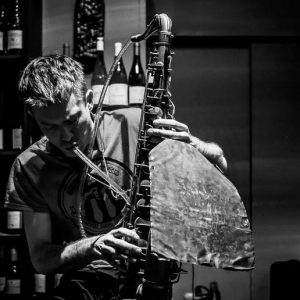
Micael Foster is a multi-reeds improviser, composer, curator, and co-founder of Queer Trash, a harsh noise series dedicated to the promotion of artists in the LGBT community in NYC and beyond.
When I think of “inclusiveness” within these many scenes, I generally think more in terms of visibility. And since there are so many micro-scenes within the umbrella of “experimental music,” certain scenes privilege visibility of one demographic over others, whether intentionally or not. Let’s use experimental jazz scenes as an example; certain experimental jazz scenes will be made up of a majority of black men, another will be entirely white men, and another more mixed. Being someone who traverses most of these various experimental scenes, I can tell you the audiences, like the musicians themselves, hardly overlap between scenes and remain largely ignorant of each other’s work. Given the undeniable aesthetic overlap that occurs between these various experimental jazz scenes, I find this disappointing and, frankly, quite pathetic and inexcusable in 2016.
Months back, I found myself at an artists’ meeting for a organization that supports Radical Black Arts (i.e., free jazz). The elder musicians in attendance (who made up a majority of those present) began to bemoan the lack of diversity and young people at shows… As someone who works tirelessly as a curator, performer, and attends at least 2-4 shows a week (in addition to a day job!), I found this rather disappointing. Most of the shows I’d seen recently not only featured a diverse array of performers but, in turn, brought out a diverse and welcoming audience. And none of the musicians I heard complaining were in attendance at any of these shows.
The fact is, there is very little communication, very little awareness, and even less cross pollination between jazz scenes, which creates homogeneous creative communities that are NOT inclusive, least of all for their audience, who are left feeling like they’ve crashed a stranger’s party.
There are too many important conversations happening about these issues now for musicians to be forgiven for their ignorance, and too many interesting musicians out there for me to waste my time listening to the ignorant.
As someone who traverses many different scenes, I’ll say this: never in the “noise scene” have I encountered any adversity for being a Queer man… However, in certain “experimental jazz” circles, I’ve heard my fair share of sexist, homophobic, and racist attitudes and rhetoric. The “straight white jazz scenes” in NYC operate in complete ignorance of identity politics, diversity, and inclusive rhetoric. They look around and see their jazz school bros and classmates, not a homogeneous room of straight, white men. And that ignorance creates venues, bills, and spaces that are neither safe nor welcoming.
Generally, if I am booked to play a show for that community, I will feel less inclined to invite my Queer friends. I hear so much complaining from musicians, whether it’s about lack of opportunities, financial compensation, audiences, etc. But if they fail to, at the very least, try to put together diverse, inclusive bills and reach out to people outside of their predominant demographic, then I see very little justification, creative or otherwise, for the continued support of that music.
More and more, I’m seeing DIY bills that are upfront about their aims for diversity, presenting the underrepresented. However, while real strides seem to be happening, I’ve still found myself in the painfully disappointing position of explaining the importance of diversity in curation. There are too many important conversations happening about these issues now for musicians to be forgiven for their ignorance, and too many interesting musicians out there for me to waste my time listening to the ignorant.
Reagan Holiday
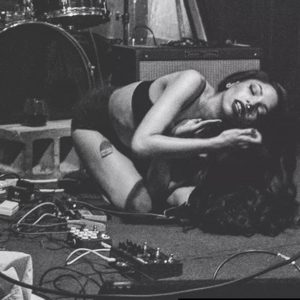
Reagan Holiday is a noise musician and a founder of the noise and drag hybrid performance series, Harsh Noise, Beat Face.
There’s a sliver of impostor syndrome that continues to inform my process, so I’ve only ever felt like a space alien who wasn’t actually a part of the world I’d slipped into. I do believe the scene is only as inclusive as the world that surrounds it. I.e., it’s not safe for black and brown femmes anywhere, and subcultures in themselves can define the polarity.
I really appreciate spaces designed to celebrate voices that otherwise wouldn’t be granted access to the experimental scene. But the fact that these exist outside the norm — still underground — is telling. White cis men continue to dominate art in every limb. If you’re ever uncertain, look out into the audience.
You can feel when you are no longer in control of the gaze — it’s the same cold feeling that washes over you when you’re harassed in the street.
I really aggressively exploit my own sexuality and vulnerability as Reagan Holiday within the performance alone. Outside of that stage, I’m forced to reconcile myself with my size, which, like my gender identity, has an inverse relationship with my external self. It is literally hard to have my voice heard at shows, and I’m often steamrolled by peers with more physical presence. You can feel when you are no longer in control of the gaze — it’s the same cold feeling that washes over you when you’re harassed in the street.
In the beginning, it was difficult to get considered in lineups for popular venues, and to feel like my work was being taken seriously. There remains almost no visibility for people who look like me in experimental music, and that was discouraging for a while. I allowed it to make me angry. Sometimes defiance can be a pair of heels and some over-lined lips.
I quickly became sick of feeling “too drag” for the boys club noise shows and “too grating” for the drag shows. Just this past year, I was finally able to bring forward Harsh Noise, Beat Face. It’s a monthly event, where predominantly queer and POC drag and noise artists can perform together, aligning the two as radical acts of resistance and response.
The first was at Torus Porta (a now defunct performance space in Bushwick, Brooklyn), and the reception was overwhelmingly positive. It’s so funny, I spent weeks worrying if it would flow together, if anyone would even go to a drag noise show. When it’s all happening, there’s this “Ah, sh**” moment where you suddenly realize you’ve created a lot more work for yourself. I’m no longer this lonely performance artist who just makes things for myself and hopes one person in the back gets it. I feel like it’s my responsibility to develop this project, to continue to produce shows that initiate conversation on the scene, and inspire others to do the same. More than anything, for a few minutes, experimental music was fun with a capital F… and a capital U. I really encourage anyone that wants to be a part of HNBF in any way to please reach out to me, I’d love to meet you.
There’s this ‘Ah, sh**’ moment where you suddenly realize you’ve created a lot more work for yourself… It’s my responsibility to develop this project, to continue to produce shows that initiate conversation on the scene, and inspire others to do the same.
Community is immensely important and probably the greatest contributing factor to the work I’m doing right now. I wouldn’t be performing as a noise artist if I hadn’t been offered equipment to borrow, or encouraged by a strong support system. It’s important to take the act of art-making out of this context of self, and emphasize the honesty in needing one another to survive and grow. Listening is key to inclusivity, and can directly affect your immediate environment. Allow others, especially marginalized others, a platform to speak and react. Defend them.
I’m also gonna use this as an opportunity to apologize to anyone I may have kicked in the head at the last HNBF. I’m sorry. I hope you had a good time, anyway.
Muyassar Kurdi
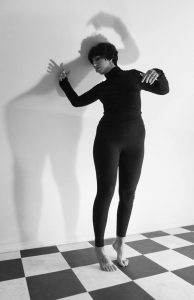
Muyassar Kurdi is a noise musician, vocalist, dancer, and performance artist.
I am from Chicago where I felt there was a lot of gatekeeping within the scene. It feels different than in NYC, where I currently reside. Perhaps it’s because Chicago is a lot smaller. Regardless, Chicago produces very powerful works within the dance and improvisation/experimental music worlds in both underground and more formal spaces. The Chicago scene actually links experimental dance and sound much more than I’ve seen in NYC so far… which lends to more feminine qualities. But then again, in actuality, both cities’ scenes are largely comprised of cis white men. And it is exclusive and feels like a club. And I don’t even want to be a part of that club, anyway.
I want to claim space, and make room for diversity in all the ways that I can. The avant-garde can be posh and inaccessible in a lot of ways… but it doesn’t have to be. My craft is an inwards journey; but I learned very quickly that what I wanted to do was bring people together, welcoming others into my web of abstraction.
I want to claim space, and make room for diversity in all the ways that I can. The avant-garde can be posh and inaccessible in a lot of ways… but it doesn’t have to be.
I have felt resistance in Chicago — too many cliques — especially when I was younger and navigating the scene for the first time. I never went to art school or studied music at the conservatory, but I was a city-born young lady going to all the underground shows at the dirty warehouses. I would go see noise and art-rock performances by bands such as ONO, and it would totally redirect my reality and inform me on how I was living in my body. I felt so much liberation from these types of performances, and Chicago is so wonderful for that. It is dirty and wild and ruthless and innovative and accessible all at the same time.
When I developed as an artist and individual, I felt that I was respected, and I don’t really have a problem with going up to a jock-jazz bro and demanding more women on stage. I was and am the best and worst thing that ever happened to these people. But I am glad I left Chicago to travel and teach and perform in Europe. Eventually I moved to NYC. And similar things are present, but NYC feels more inclusive in certain ways. I think it is possible to get away with more here. It is bigger, there are more options, and you are here to DO that THING. Since coming here, I feel momentum in what I am doing. But then again, I am always looking forward to the wonderful treatment and responses I receive in Europe.
I just arrived [in NYC] this past April, but my contribution to the scene so far has consisted of being present at a lot of shows. I am that faithful ear. I have also curated a few diverse shows, taught workshops, and ruthlessly paraded around without a filter. My last curation was at Park Church Co-op for my series MACHINE//BODY which incorporates the use of other modes, such as movement and architecture. I feel that many people hide behind instruments and don’t actually embody sound. It isn’t about producing a bunch of nihilistic notes and energies — big spurts serving no purpose but only to exploit sound — it is about empathy. The world needs sound and theatre and movement.
+ Read more on Flypaper: “CDs as Expanded Instruments: Pioneers of Hacked CD Sound Art”
Taja Cheek
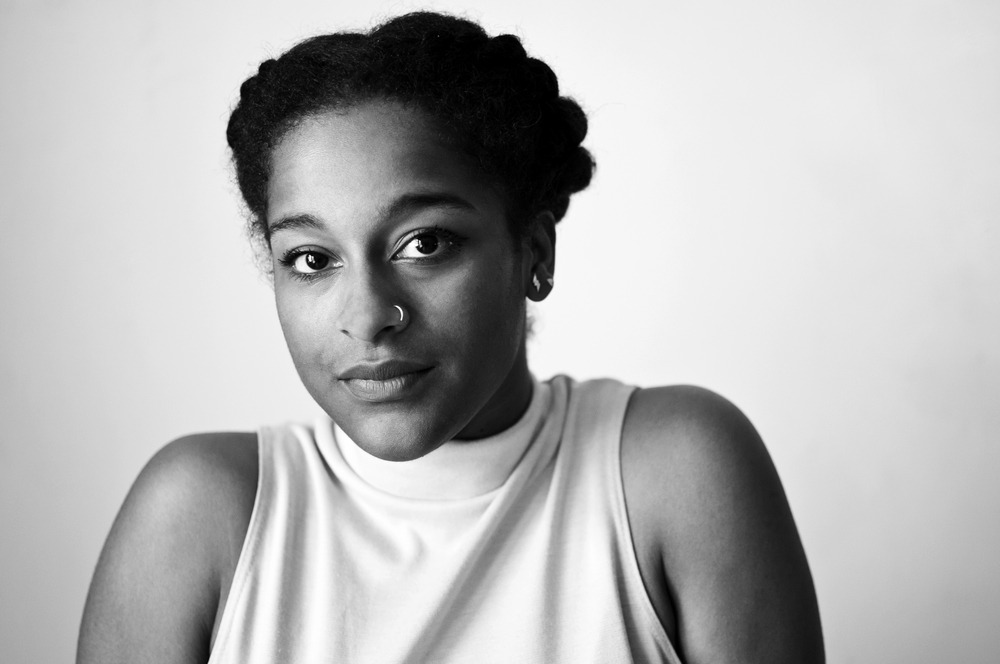
Taja Cheek is a multi-instrumentalist, curator, and co-founder of DIY venues 49 Shade and Nola, Darling.
To be honest, I think I’ve internalized so much doubt, frustration, and sadness that it’s difficult to pry apart what individual aggressions (micro and otherwise) I actively experience from the general feedback loop of inequity that is constantly rippling through my hours and days. It’s ridiculous that I even try to make these distinctions. What is the difference anyway? I feel the same when the owners of [insert DIY venue] blatantly ignore my emails as I do when I walk into a room of kind, well-intentioned white men making harsh noise. It all stems from the same place. It seems impossible to simultaneously feel invisible and tokenized, but I feel both. It’s illogical, but it’s true. It’s hard to get far enough past this to feel safe making music, let alone performing it. I’ve cancelled quite a few shows because of the confusing feelings I’ve internalized.
Existence is sometimes an act of rebellion.
I do see a handful of women and people of color being recognized for their creative contributions and talent. There’s still only a handful, but they’re there. Visible as ever. I co-host and sometimes co-organize shows in my basement and other venues around the city. I remember the first time I saw a woman of color (one that I didn’t already know) in the audience. We were so excited and surprised to see each other that we nervously spent the whole night staring at each other. We spoke with our eyes for many hours until I finally got the courage to introduce myself in earnest. Existence is sometimes an act of rebellion. That’s still a lot to wrap my mind around.
